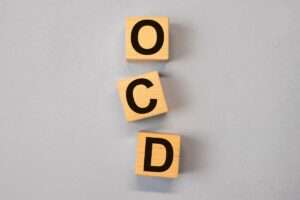Introduction:
Obsessive-Compulsive Disorder (OCD) is a mental health condition characterized by intrusive thoughts (obsessions) and repetitive behaviors (compulsions) aimed at reducing anxiety. Millions of people worldwide suffer from OCD, making it a pressing mental health concern. A common question that arises for those diagnosed is: Can OCD be cured? While there is no simple answer, understanding the nature of OCD and available treatments can shed light on its management and potential outcomes.

What is OCD?
Obsessive-Compulsive Disorder involves a cycle of obsessions and compulsions. Obsessions are distressing, unwanted thoughts or urges, while compulsions are behaviors individuals feel compelled to perform to reduce their anxiety. These compulsions, however, often only provide temporary relief and can disrupt daily life. Can OCD be cured completely? Let’s explore this more deeply.
For those seeking Best OCD Treatment, consider visiting:
1. Can OCD Be Fully Cured?
The term “cure” often implies the complete elimination of a condition. Can OCD be cured entirely? While OCD does not have a definitive cure, it is a manageable disorder. Many individuals with OCD learn to manage their symptoms effectively with proper treatment. The goal is not necessarily to eliminate OCD but to reduce its impact on daily functioning, allowing individuals to lead fulfilling lives.
2. Effective Treatment Options
Treatments for OCD focus on reducing symptoms and improving quality of life. Cognitive Behavioral Therapy (CBT), particularly Exposure and Response Prevention (ERP), has proven to be one of the most effective therapies. ERP involves exposing the individual to anxiety-inducing stimuli and preventing the compulsive behavior that typically follows. Over time, this can help reduce the severity of OCD symptoms.
In some cases, combining therapy with other behavioral strategies may enhance outcomes. Support groups, lifestyle changes, and mindfulness techniques also play a crucial role in the treatment process. National Institute of Mental Health (NIMH) – OCD Treatment
3. Can OCD Symptoms Return?
Even after successful treatment, OCD can be a chronic condition, meaning symptoms might return or fluctuate over time. Stress, life changes, or other external factors may trigger a resurgence of symptoms. However, with ongoing management and the right support system, individuals can navigate these relapses and maintain control over their condition.
4. Long-Term Management and Support
OCD is often considered a lifelong condition, but many individuals learn to live with it through effective management. Long-term strategies include continued therapy, self-help tools, and staying informed about new research. Keeping a close relationship with a mental health professional can be beneficial, especially during periods of heightened stress or symptom recurrence. Centers for Disease Control and Prevention (CDC) – Mental Health
5. Living a Fulfilled Life with OCD
Though OCD can feel overwhelming, individuals with the condition can lead meaningful and productive lives. A strong support network, combined with professional guidance, can empower individuals to regain control over their thoughts and behaviors. Building awareness of one’s triggers, employing healthy coping mechanisms, and engaging in regular therapy can dramatically improve life quality.
Conclusion
While OCD may not have a definitive cure, it is a condition that can be effectively managed with proper care and treatment. Cognitive Behavioral Therapy, particularly ERP, remains the gold standard in reducing symptoms and promoting recovery. With ongoing support, individuals with OCD can lead fulfilling lives and keep their symptoms in check.
For those seeking help, it’s essential to consult with a mental health professional and explore the options available for managing OCD. World Health Organization (WHO) – Mental Health
By understanding OCD and committing to long-term management strategies, individuals with OCD can regain control and live fulfilling lives despite the challenges posed by the disorder.

